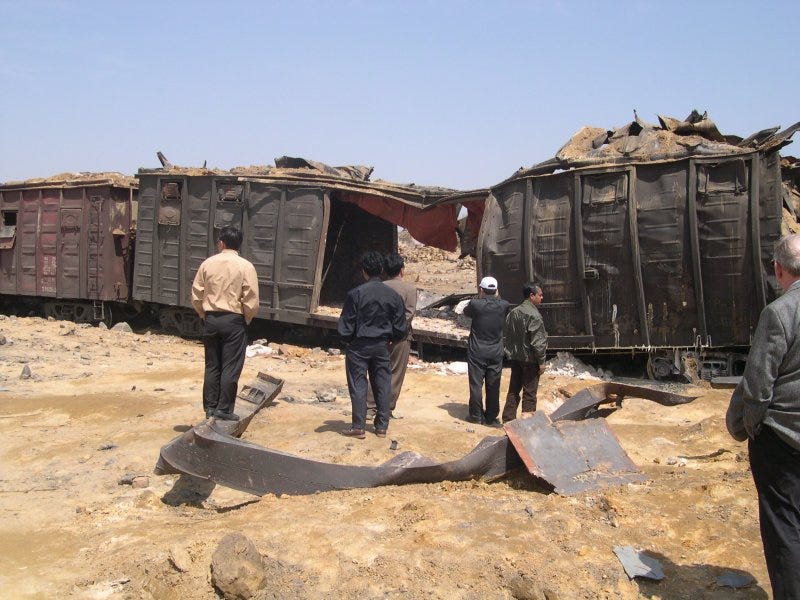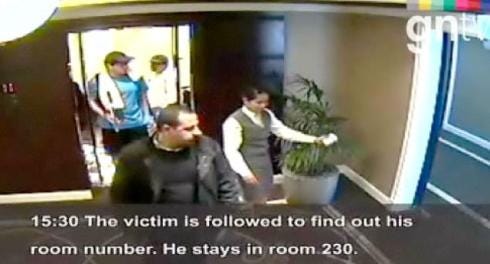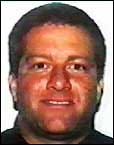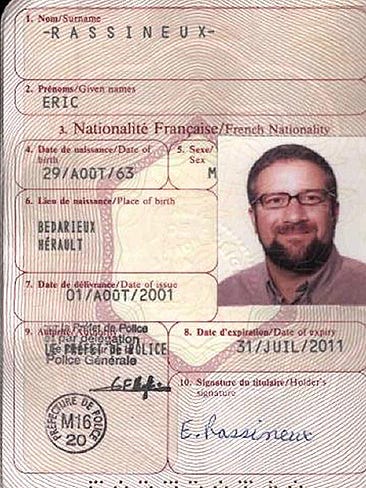Sanctions & Assassinations - Mossad & New Zealand, Part 2
The diplomatic fallout of the 2004 passport scandal, and the global trail one spy left after fleeing
What had a bigger impact was the diplomatic turmoil that followed. Clark’s Labour government issued diplomatic sanctions against Israel following the duo pleading guilty. A visit to New Zealand by Israeli President Moshe Katzav was cancelled, and the Deputy Chief of Staff was denied permission to enter the country in March 2005 to speak at a fundraising event. Clark requested an apology and explanation from the Israeli government before relations would be restored, calling the incident “far more than simple criminal behaviour by two individuals”.1 Clark later said she had “no doubt whatsoever”2 that the two were Israeli spies, and that other thefts had taken place.
“We regard it as totally unacceptable that a country with which New Zealand has long had friendly relations would attempt to undermine our law and sovereignty in this way.”3
Hamas praised the New Zealand government’s response, urging other countries to “adopt firm measures against the Zionist entity’s violations of laws on foreign lands to achieve certain targets.”4 The government quickly tried to distance itself from the statement, saying Hamas would be subject to the same response if it tried a similar operation.
In mid-2005, the Israeli Foreign Minister Silvan Shalom finally sent a letter of apology, expressing “regret for the activities which resulted in the arrest and conviction of two Israel citizens in New Zealand... Israel commits itself to taking steps to prevent a recurrence of similar incidents in the future.”5 In August, the Governor-General accepted the ambassador’s credentials, officially restoring relations. Shalom and the New Zealand ambassador to Turkey met in October of the same year, with an Israeli government statement reporting the meeting was the first between officials “since the incident with the Mossad”.6 An Israeli spokesperson later denied that the statement was an admission of guilt, saying that the quote should have been in inverted commas as espionage had only been alleged by the New Zealand government.
But what happened to the men in the ring after the debacle? After returning from his stint in New Zealand prison, Eli Cara decided to get a job with Visa.7 Uriel Kelman has seemingly dropped off the map. Tony Resnick, the New Zealand paramedic and AUT lecturer, suddenly fled the country for Hong Kong the day after Cara and Kelman were arrested, saying that he needed to visit a friend who’d been in a car accident.8 Resnick’s wife and children soon followed, and it’s believed they then ended up in Israel. Resnick was an (albeit small) stockholder in a New Zealand company named Nomad Wireless Holdings, later Old Wireless Holdings, with telco and venture capitalist Martyn Levy as director.9 Levy was involved in the early 2000s with attempts to attract Israeli investment into New Zealand, through later-bankrupt developer Andrew Krukziener’s VC firm.10
Martyn’s father, Geoff Levy, who had just stepped down as co-chairman of the Auckland Jewish Council earlier in 2004, told the NZ Herald “he had known Mr Resnick, a former council member, for many years. He said the allegations about Mr Resnick were no more than that and should be treated with caution.”11 Geoff Levy also served as Uriel Kelman’s lawyer during the trial. In June this year, Martyn Levy spoke at a talk on post-October 7 antisemitism with New Zealand Jewish Council president Juliet Moses.12
However, the much more interesting figure was Barkan, the man for whom the passport was intended. He’d already left New Zealand before the two were arrested, with New Zealand authorities saying at the time they were unaware of his whereabouts. A New Zealand NGO operating in Asia, Global-Protect All Children (then tied up in allegations that its cofounder Jack Sanders was a pretend NZSIS agent providing disinformation to Nicky Hager,13 a story too complex to get into here) alleged that Barkan had stolen a Canadian passport in Guangzhou in April 2004, just weeks after leaving New Zealand.14 New Zealand intelligence suspected that the passport theft was an attempt to get a clean passport for an operation in the region. It’s likely the Canadian passport was Barkan’s Plan B.
Barkan then allegedly used the stolen Canadian passport to enter North Korea alongside other Israelis posing as “security consultants”, helping North Korea build a “security wall” on its border with China.15 He had been spotted in Pyongyang the same month, according to the NGO. On 22 April 2004, only 11 days after the Canadian passport was stolen in China, a massive explosion occurred at the Ryongchon railway station in North Korea, a town near the Chinese border.16 Hundreds, if not thousands (depending on North or South Korean sources) died, with 40% of the town being flattened. While it was initially assumed the explosion was an attack on Kim Jong-il, who had passed through the town 9 hours before, 12 Syrian scientists accompanying missile and military components to Damascus were also killed in the explosion.17 Israel has a long history of targeting military scientists of enemy countries, including Egypt, Iran, Iraq, and Syria. It’s certainly interesting that the Israeli spy on the run for New Zealand passport fraud allegedly steals a Canadian passport and enters North Korea as a “security consultant”, not even 2 weeks before Syrian scientists are killed in an unsolved explosion in the same area.
After the initial reports tying him to North Korea, Barkan was subject to further allegations of strange activities in Asia. An anonymous “aid worker” (likely Sanders again) told the Sydney Morning Herald that Barkan was connected to an Israeli security company operating in Thailand. This work included going to countries like “Laos, Cambodia, Burma and Thailand and deal[ing] with gangs who rob tourists of their valuables and passports”.18 More spurious allegations surfaced in 2005, tying Barkan to an alleged porn and snuff film studio operating on the Mekong River in Cambodia.
“In a professional studio, girls from New Zealand and Australia – students and tourists – were lured into thinking they were to become movie stars. At first they made porn films in studios in Phnom Phen behind a local bar before branching out into films of hangings and executions of city vagrants, followed by suicide films.”19
Barkan resurfaced again in 2010 when the UAE government accused him of being involved in the murder of Hamas arms dealer Mahmoud al-Mabhouh in a Dubai luxury hotel.20 Barkan, using a French passport under the name of Eric Rassineux, was one of 32 Mossad agents involved in the operation. Australian, British, Irish, and Dutch passports were also used as cover. Barkan was allegedly seen in CCTV footage tailing al-Mabhouh to his hotel room when checking in, which other agents then broke into while he was out.21 Upon returning, al-Mabhouh was drugged with a paralytic agent and suffocated to death, with all agents flying out within hours of the hit.
The operation caused major friction between Israel and the countries whose passports had been used, with Australia, Ireland and Britain expelling diplomats in the aftermath.22 France’s counterintelligence agency had complained to Mossad after it was revealed the operation was headquartered out of a Paris hotel.23 UAE police alleged that Canada had actually arrested Barkan and was refusing to cooperate, with Canada refuting that they had anyone in custody.24
In the current day, Zev Barkan’s time as a Mossad wetwork operative is seemingly over, now working as Vice President of Operations at Israeli cybersecurity firm XM Cyber. His bio on the company website broadly boasts about his previous occupation:
“Before becoming XM Cyber’s VPO, Zev Barkan spent over 30 years with the Israeli Intelligence Community. Mr. Barkan brings managerial experience, leading technological and operational divisions, including areas such as cyber, IT and was in charge of the International Cooperation Division.”25
Even over 20 years on, questions still linger about the 2004 Israeli passport scandal. Though New Zealand’s diplomatic response at the time was much more severe than the inaction seen after 2 years of systematic genocide, was there international pressure on the government to let the spies off with a slap on the wrist? A Wikileaks cable revealed that the US embassy viewed the prosecution as “grandstanding in order to sell more lamb to Arab countries”.26 The two convicted spies only served 3 months before being deported.
How many other local helpers had been involved with the operation? Resnick was likely the most exposed, having worked at St. John’s and likely involved with identity selection. However, considering his and the other agents’ links to the local Jewish community and the NZJC, it’s likely that others were assisting. That being said, no other individuals have been definitively identified as being involved.
How many other NZ passports were acquired by Mossad agents? The practice had been going on since the 1990s, and the fact that Cara had been in and out of New Zealand 24 times by 2003 means it likely wasn’t the first passport he’d assisted in obtaining through this method. Clark confirmed at the time that other passports had been obtained, and subsequently cancelled by the DIA. And as will be seen in Part 3 of this series, it wouldn’t be the last time.







You need to email me from a different account as the reply I sent to you went to a substack support email (and bounced) and not directly to you.
Happy Birthday Mark DUNICK (Aka EDEN). I'm sure you'll see this Mark!
Hey isn't it time you guys told the truth about what actually happened rather than continue with the bullshit?
Isn't it time you guys admit that Rochelle REES was tipped off about me by Gavin CLARK?
Isn't it time you guys admit that Gavin CLARK told Rochelle REES specific details about the undercover operations?
Isn't it time that as part of the tip off deal that activists agreed to go soft on THOMPSON and CLARK Investigations?
Isn't it time for the truth to come out rather than the bullshit and speculation of the past?